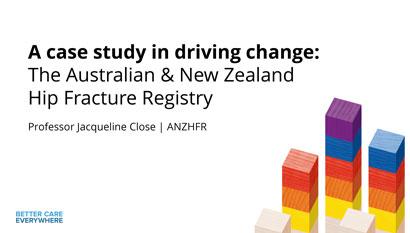Myringotomy is a common surgery in young children used to treat middle ear disease. Find out about variation in myringotomy hospitalisation rates in the Fourth Australian Atlas of Healthcare Variation 2021.
Proton pump inhibitor (PPI) medicines are one of the most commonly used medicines in Australia, particularly among older people. Find out about variations in PPI prescription dispensing in the Fourth Australian Atlas of Healthcare Variation 2021.
Medication management reviews (MMRs) assess a person’s medicines to reduce the risk of harm. Find out about variation in MMR rates in the Fourth Australian Atlas of Healthcare Variation 2021.
Polypharmacy is when people are using five or more medicines at the same time. This can increase their risk of medicines-related harm. Find out about variation in rates of polypharmacy in the Fourth Australian Atlas of Healthcare Variation 2021.
Gastroscopy is used to investigate, treat and monitor some gastrointestinal conditions. Find out about variation in repeat gastroscopy services in the Fourth Australian Atlas of Healthcare Variation 2021.
Colonoscopy is used to investigate the bowel. Repeat colonoscopy is mainly used to check for polyps and bowel cancer. Find out about variation in repeat colonoscopy rates in the Fourth Australian Atlas of Healthcare Variation 2021.
Gastroscopy is used to investigate, treat or monitor some gastrointestinal conditions. Find out about variation in gastroscopy services in the Fourth Australian Atlas of Healthcare Variation 2021.
Early planned births are when babies are born before 39 weeks of pregnancy by planned caesarean section or induced labour. Find out about early planned births in the Fourth Australian Atlas of Healthcare Variation 2021.
Older people over 75 may have several chronic conditions and need multiple medicines. This can put them at risk of medicines-related harm. This chapter of the Fourth Australian Atlas of Healthcare Variation examines polypharmacy, medication management reviews and proton pump inhibitor dispensing in older people.
Potentially preventable hospitalisations are those that could have been avoided if the person’s condition had been managed better, earlier. This chapter of the Fourth Australian Atlas of Healthcare Variation examines chronic obstructive pulmonary disease (COPD), kidney infections and urinary tract infections, heart failure, cellulitis, and diabetes complications.
Gastroscopy and colonoscopy are mainly used to investigate, treat or monitor gastrointestinal conditions in people aged 55 years and over and people at risk of gastrointestinal disease. This chapter of the Fourth Australian Atlas of Healthcare Variation examines gastroscopy, repeat gastroscopy and repeat colonoscopy.
Early planned births are when babies are born before 39 weeks of pregnancy by planned caesarean section (that is, without established labour) or induction of labour. The Fourth Australian Atlas of Healthcare Variation examines early planned births when there is no documented medical or obstetric reason for an early birth.
Tonsillectomy (surgery to remove the tonsils) and myringotomy (surgery to treat middle ear disease) are common surgeries in children. This chapter of the Fourth Australian Atlas of Healthcare Variation examines these surgeries in people aged 17 years and under.
Lumbar spinal surgery is sometimes used to treat chronic low back pain and other symptoms of degenerative spinal disorders. This chapter of the Fourth Australian Atlas of Healthcare Variation examines lumbar spinal fusion and lumbar spinal decompression.
The Fourth Australian Atlas of Healthcare Variation examines variation in healthcare use according to where people live. It covers six clinical areas: early planned births; chronic disease and infection; ear, nose and throat surgery in children and young people; lumbar spinal surgery; gastrointestinal investigations; and medicines use in older people. The Atlas was launched by the Hon Greg Hunt MP on 28 April 2021.

